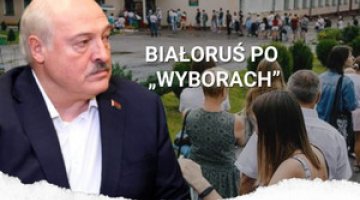Belarus: the pro-regime Belaya Rus party holds its founding congress
The founding congress of the Belaya Rus political party was held in Minsk on 18 March. It is based on the pro-regime social organisation of the same name, which has been active since 2007. More than 1000 delegates adopted its party platform and founding charter, and unanimously elected Aleh Ramanau as chairman of the new grouping; he had formerly led the Belaya Rus social organisation. In addition, the new leadership included the journalist for state TV Ryhor Azaronak, who is well-known for his aggressive propaganda attacks against the West. The party’s platform is based on full support for the domestic and foreign policies of the Alyaksandr Lukashenka regime. Russia’s pro-Kremlin United Russia party has already expressed its interest in cooperating with the new grouping.
The establishment of Belaya Rus was preceded by Lukashenka’s signature on 14 February of a law that introduced new rules for political parties, according to which the 15 currently existing legal groupings must re-register within the next three months. For their applications to be accepted, they must meet new, stricter requirements, including an increase in the minimum number of members from 1000 to 5000, and the obligation to have structures in all regional cities. The Justice Ministry will then decide within the next six months whether to register each party. The above rules also apply to groupings seeking legalisation for the first time. On 13 December last year, referring to the rebuilding of the Belarusian party system, Lukashenka said it would be expedient to permit only those parties which accepted the regime’s chosen political strategy; he made it clear that those still legally operating in opposition to the government should be liquidated.
Commentary
- The Belarusian party system has so far been underdeveloped, with political parties playing no significant role in the governance of the state; this went hand in hand with the marginal role played by the bicameral parliament. Lukashenka had feared the emergence of a viable party of power, which he saw as a potential tool for consolidating the nomenklatura and strengthening its position vis-à-vis the head of state. At the same time, his rhetoric emphasised direct contact with the public, presenting himself as the sole guarantor of security and social stability in Belarus.
- The Belaya Rus organisation has about 200,000 members, who are mainly drawn from state structures of all levels and individual regions of the country. Since its inception it has made (hitherto) unsuccessful efforts to transform itself into a political party. When it convened its founding convention this March, the leadership of this group (one of Belarus’ most numerous social organisations) decided to make another attempt to form a party. In doing so, it hoped to be able to participate in the recently reformed party system.
- However, the registration of Belaya Rus is not a done deal. The grouping’s strong support among the broader nomenklatura may raise some concern for Lukashenka, as could the immediate support it received from United Russia while the convention was still in progress – which may indicate Moscow’s search for a potential pro-Russian faction. In this context, it is worth noting Lukashenka’s absence from the event, as well as his failure to make any comments on the subject. The rally was also completely ignored by the presidential press service.
- The reshaping of the party system in Belarus is part of the broader changes to the Belarusian political system which have their roots in the constitutional amendment adopted in a rigged referendum on 27 February 2022. The permanent governing body to be created, in the form of the All-Belarusian People’s Assembly, is intended as a dummy representation of the people which will not pose any threat to the regime. It will consist not of delegates elected by popular vote, but of representatives appointed by individual political groups. This is why the government places great importance on creating a hermetic, fully controlled party system. The reform being implemented, then, is aimed primarily at eliminating those opposition groups which still exist. Yet at the same time it does not appear from Lukashenka’s statements to date that he has changed his mind about the formation of a party of power along the lines of United Russia.





